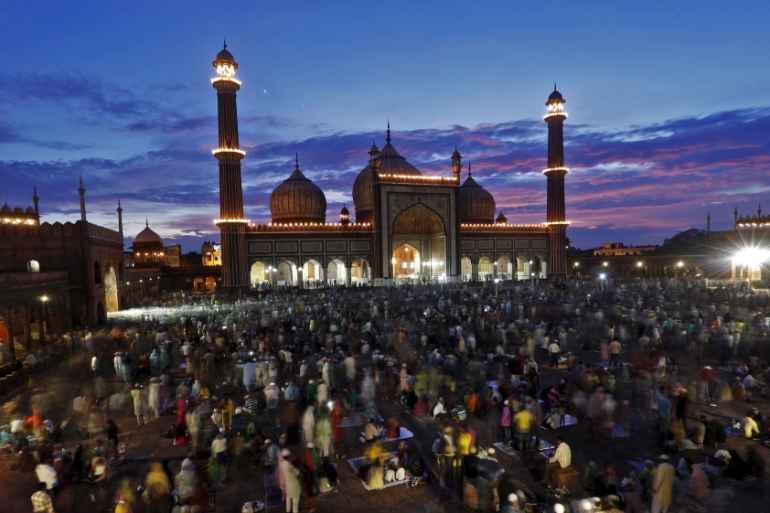Summary: Can Muslims Celebrate Birthdays?
Muslims can celebrate birthdays. Islam does not say that celebrating birthdays is wrong. Some Muslims celebrate this day as a way of showing gratitude for life. When celebrating, it is important to keep things simple and happiness.
You can eat cake and light birthday candles. These practices are acceptable provided they do not result in inappropriate behavior. If is possible to invite family and friends, and spread happiness to everyone. But, don’t view birthdays as a religious event. Instead, treat them as a special day to reflect on life and your blessings.
If you keep your celebrations respectful and happiness, you can fully enjoy your birthday while remaining true to your faith.
Many Muslims usually think if celebrating birthdays is allowed in Islam. Some people belief birthdays as a cultural event, even incorporating religious customs, while others simply see them as a regular day. This is a common question between new Muslims who want to know if celebrating birthdays aligns with Islamic teachings.
As Muslims, we work to follow Islam in all of our actions, knowing that we will answer to Allah one day. We avoid anything that could displease Him, so we thoroughly research Islamic teachings before starting anything new.
This article will answer common questions such as, “Is it permissible to celebrate birthdays in Islam?”. Is it OK to cut a cake? Can Muslims give gifts for birthdays?
We will provide an extensive guide based on Islamic teachings to help clear up misconceptions about birthday celebrations between Muslims, particularly who new to Islam.
Please note that here we are talking about celebrating one’s own birthday, not Eid Milad-un-Nabi.
Do Muslims Celebrate Birthdays
Yes, some Muslims do celebrate birthdays, while others choose not to. But plenty of people do not celebrate birthday, because of a lack of understanding about religious guidelines. Gaining knowledge is important in Islam, but still many people do not fully learn about the Islamic teachings.
Currently, translations of the Quran or Hadith are available in almost every language, making Islamic knowledge more accessible.
Allah says in the Quran,
“And We have certainly made the Quran easy to understand and remember” (Quran 54:17).
This verse tells us that learning about the Quran is possible for everyone, encouraging Muslims to seek guidance directly from the Quran and Hadith.
If we, as Muslims, read the Quran and Hadith, we will find answers to all of our questions, including whether it is allowed to celebrate birthdays. But is it permissible to celebrate a birthday? This is another important question. We will also provide an answer based on the Quran and Hadith.
Are Muslims Allowed To Celebrate Birthdays?
Yes, Muslims can celebrate birthdays. When it comes to Islamic teachings, the Quran and Hadith do not explicitly mention celebrating or not celebrating birthdays. As previously discussed, some Muslims choose to celebrate birthdays, and some consider it an unIslamic act.
But, celebrating birthdays is not an Islamic or religious act; it is a worldly practice.
Some people think that celebrating birthdays is a form of bid’ah (innovation in religion), but that’s not truth. To understand this, it’s important to know what is bid’ah. Bid’ah is introducing something new into the religion that was not part of it.
For example, the early Muslims used to call the adhan (call to prayer) by standing on a high place or rooftop. Today, using the advance technology, the adhan is called using loudspeakers.
This change is not bid’ah because it does not change the words of the adhan; only the method has changes. However, if someone added new words to the adhan, that would be considered bid’ah.
Similarly, it makes no difference whether the four required rakats of the zuhr prayer are performed on a prayer mat or on the floor, as long as the number remains four. But if someone performed five rakats instead of four, they would be adding to the religion, which is considered bid’ah.
The Prophet Muhammad (peace be upon him) said: “Whoever introduces something into this matter of ours that is not part of it, it will be rejected.” (Sahih Bukhari)
Celebrating a birthday is simply a worldly act. Every Muslim can celebrate it, but living the boundaries of Sharia. It depends on your purpose:
If your intention is to thank Allah, who creating you and giving you life, it is not haram. You can express thanks to Allah, for honoring you by including you in the ummah of the Prophet Muhammad (PBUH) and giving upon you the gift of being human, and made member of the best creation.
Celebrating your birthday can be a way to show gratitude to Allah.
However, if you think about birthday celebrations to be a necessary part of Islam, they would be categorized as bid’ah because Islam does not define birthdays as a religious act.
Keep birthdays simple and worldly, with a focus on gratitude for Allah’s blessings. Abstain from any activities that violate Islamic principles.
For example, Islam forbids music and dancing, which are usual parts of modern birthday parties. To celebrate your birthday invite your friends, family, and cousins while making modest arrangements, particularly make curtains for women. Celebrating your birthday in a way that respects Islamic values and avoids sinful activities is acceptable, it is not bid’ah. this method of celebration birthday is allowed.
As we have explained, bid’ah only applies when something is added as a religious act, not a cultural or worldly one.
Can I Fast On My Birthday In Islam?
Yes, you can fast on your birthday, and it can be a wonderful act of worship. Fasting is highly beloved to Allah. Our beloved Prophet Muhammad (PBUH) was born on a Monday, and he would fast every Monday.
The Prophet (PBUH) said, “I was born on a Monday, and on that day, the first revelation was sent to me,” which is why he observed fasting on that day (Sahih Muslim).
Fasting on your birthday with the intention of thanking Allah can be a great way to remember the day Allah gave you life.
Fasting is a purely personal act of worship between you and Allah, and He knows your intentions best.
By fasting on your birthday, you are simply performing a beloved form of worship, which Allah, in His mercy, can greatly reward.
Can Muslims Accept Birthday Gifts?
Yes, Muslims can accept birthday gifts. In Islam, giving and receiving gifts is encouraged because it fosters love and strengthens relationships.
The Prophet Muhammad (PBUH) said, “Exchange gifts, as that will lead to increasing your love for one another” (Al-Bukhari). Accepting a gift on a birthday doesn’t make it an un-Islamic act, as it’s just a kind gesture.
Although the intention behind the gift is important. If someone gives you a gift as a sign of love, appreciation, or friendship, you are free to accept it.
There’s no harm in exchanging gifts on special days like birthdays, as long as the celebration stays within the limits of Islamic teachings and doesn’t involve un-Islamic practices.
Is It Halal to Eat Birthday Cake?
Yes, you can eat birthday cake that contains halal ingredients. In Islam, food can be defined as halal or haram based on its ingredients and preparation. It is permissible to eat cake that contains halal ingredients such as flour, sugar, eggs, and halal flavorings.
However, if you consider the birthday celebration as a religious practice, eating the cake may become haram.
In this case, you link the birthday and cake to religion, while a birthday is a worldly event that does not have a religious aspect. Therefore, consuming cake in this context could be viewed as inappropriate.
On the other hand, if you see the birthday as a simple celebration of joy, then you can enjoy the cake. It’s a great opportunity to share with friends, family, and even neighbors.
If possible, consider sharing with those in need as well. This way, you can celebrate your birthday and also earn Allah’s blessings.
Is It Haram to Return a Gift in Islam?
No, returning a gift is not haram in Islam. Returning a gift can be acceptable depending on the situation. If you receive a gift that you cannot use or need, it is perfectly fine to return it to the giver. However, it is necessary to approach the situation with compassion and respect.
Islam promotes generosity and gratitude. If you do not want to keep a gift, you could politely share your feelings to the giver. You could also offer to exchange it for something that is more suitable. Remember that intentions matter in Islam.
If your intention is to maintain good relations and express gratitude, returning a gift is not against Islamic teachings. To summarize, returning a gift is not haram and can be done thoughtfully and respectfully.
Are Birthday Candles Haram in Islam?
Birthday candles are not haram in Islam by themselves. You can use them during a birthday celebration as long as the overall celebration is appropriate.
Many people celebrate birthdays simply with family and friends, and using candles can be part of that fun.
Some scholars say that blowing out candles and making wishes is more of a cultural practice than a religious one. Since Islamic teachings do not directly say that using candles for birthdays is wrong, you can use them if it fits well with the occasion.
However, if the birthday celebration includes activities that go against Islamic values, such as excessive partying or inappropriate behavior, then it may not be acceptable.
Focus on your intention for the celebration. If you celebrate with gratitude and joy in a way that aligns with Islamic teachings, using birthday candles is perfectly fine.



